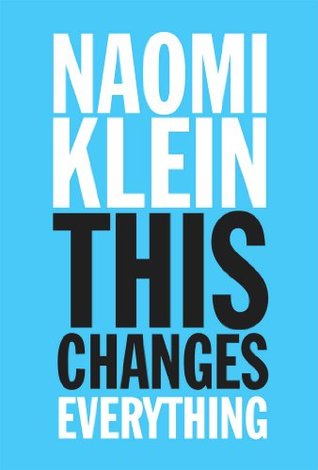More on this book
Community
Kindle Notes & Highlights
over the past four decades corporate interests have systematically exploited these various forms of crisis to ram through policies that enrich a small elite—by lifting regulations, cutting social spending, and forcing large-scale privatizations of the public sphere. They have also been the excuse for extreme crackdowns on civil liberties and chilling human rights violations.
As MIT economist John Reilly puts it: “The more we talk about the need to control emissions, the more they are growing.” Indeed the only thing rising faster than our emissions is the output of words pledging to lower them.
The British psychoanalyst and climate specialist Sally Weintrobe describes this as the summit’s “fundamental legacy”—the acute and painful realization that our “leaders are not looking after us . . . we are not cared for at the level of our very survival.”
The three policy pillars of this new era are familiar to us all: privatization of the public sphere, deregulation of the corporate sector, and lower corporate taxation, paid for with cuts to public spending.
we are left with a stark choice: allow climate disruption to change everything about our world, or change pretty much everything about our economy to avoid that fate. But we need to be very clear: because of our decades of collective denial, no gradual, incremental options are now available to us. Gentle tweaks to the status quo stopped being a climate option when we supersized the American Dream in the 1990s, and then proceeded to take it global.
the fetish of centrism—of
reasonableness, seriousness, splitting the difference, and generally not getting overly excited about anything. This is the habit of thought that truly rules our era, far more among the liberals who concern themselves with matters of climate policy than among conservatives, many of whom simply deny the existence of the crisis. Climate change presents a profound challenge to this cautious centrism because half measures won’t cut it: “all of the above energy” programs, as U.S. President Barack Obama describes his approach, has about as much chance of success as an all of the above diet, and the
...more
underneath all of this is the real truth we have been avoiding: climate change isn’t an “issue” to add to the list of things to worry about, next to health care and taxes. It is a civilizational wake-up call. A powerful message—spoken in the language of fires, floods, droughts, and extinctions—telling us that we need an entirely new economic model and a new way of sharing this planet. Telling us that we need to evolve.
think big, go deep, and move the ideological pole far away from the stifling market fundamentalism that has become the greatest enemy to planetary health.
there is still time to change ourselves so that we are far less brutal to one another when those disasters strike.
The word “apocalypse” derives from the Greek apokalypsis, which means “something uncovered” or revealed.
The disaster also revealed the huge risks that come with deep inequality, since the people who were already the most vulnerable—undocumented workers, the formerly incarcerated, people in public housing—suffered most and longest. In low-income neighborhoods, homes filled not only with water but with heavy chemicals and detergents—the legacy of systemic environmental racism that allowed toxic industries to build in areas inhabited mostly by people of color. Public housing projects that had been left to decay—while the city bided its time before selling them off to developers—turned into death
...more
“We should tax the rich more because it is the fair thing to do, and because it will provide a better life for most of us, and a more prosperous economy. However, providing money to save civilization and reduce the risk of human extinction is another good reason to bill the rich for their fair share of taxes.”
if we are to collectively meet the enormous challenges of this crisis, a robust social movement will need to demand (and create) political leadership that is not only committed to making polluters pay for a climate-ready public sphere, but willing to revive two lost arts: long-term public planning, and saying no to powerful corporations.


